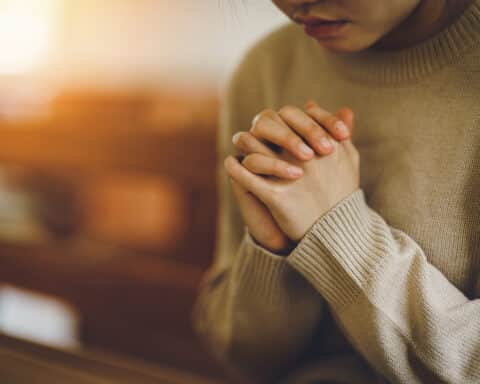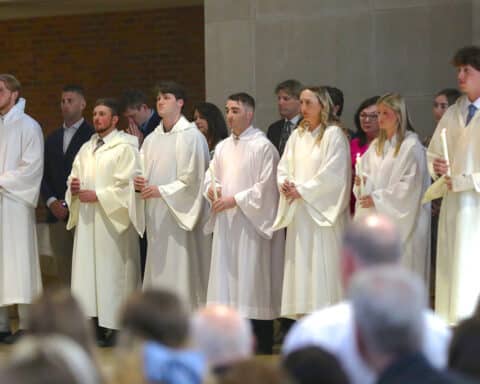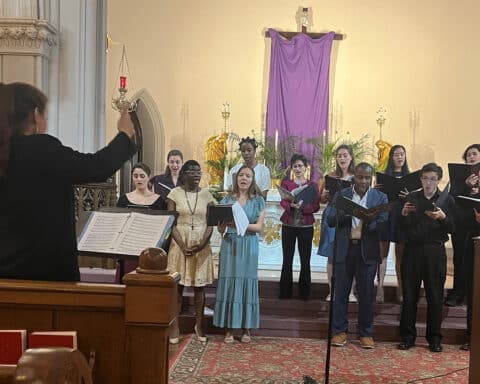
This is especially hard for those of us who prefer, shall we say, to manage things ourselves. Don’t we, after all, know best? And it also can be hard for those who have fallen out of the practice of trusting, and for whom worrying has become a default position. The ability to effortlessly trust in God — to completely forego one’s own will for that of our divine creator — is the product of prayer, determination, hard work, courage and more prayer. “Let go, and let God” may sound nice and easy, but it takes serious effort. We have to want it.
Recently at Sunday Mass, we heard Matthew’s Gospel recount the story of Jesus walking on water. To refresh your memory: When the disciples saw their master walking on the sea, they were filled with terror. “It is a ghost,” they said. Jesus immediately responded with words of comfort: “Take courage, it is I; do not be afraid.” When Peter replied, “Lord, if it is you, command me to come to you on the water,” Jesus said simply: “Come.”
This gentle call was, in the words of Pope Francis during a recent Angelus reflection, “a call to abandon ourselves trustingly to God in every moment of our life, especially in moments of trial and fear.”
But it’s not easy. Peter falters, he flails, he starts to sink. But he also trusts, crying out, “Lord, save me.” Again, Pope Francis advises: “When we have strong feelings of doubt and fear and we seem to be sinking, we must not be ashamed to cry out, like Peter: ‘Lord, save me.'” This simple prayer, the pope said, is like knocking on the hearts of God and Jesus. “We can repeat it many times.”
There is something comfortingly active about that simple plea: “Lord, save me.” Of course, the Lord knows our hearts. He knows exactly when and where and how we need to be saved. He only waits for us to seek him out, to depend on him. He asks for our trust.
A recent article in Radiant magazine, an online publication for young Catholic women, featured a Litany of Trust, composed by the Sisters of Life. Reminiscent of Cardinal Merry del Val’s Litany of Humility, the Litany of Trust is basically “Lord, save me” in verse. More than a few of its lovely lines resonate with our current situation.
“From discouragement, Deliver me, Jesus.”
“From refusals and reluctances in accepting Your will, Deliver me, Jesus.”
“From anxiety about the future, Deliver me, Jesus.”
But the really beautiful thing about the Litany of Trust is that it doesn’t end with a cascade of pleas. It ends with a repeated promise: “Jesus, I trust in you.”
For those of us struggling with life right now, and in need of an infusion of trust, the Litany of Trust can be a simple, peaceful and beautiful place to begin. Pray it every day. Invite the Lord to save you. After that, all you can do is let go, and let God.
Gretchen R. Crowe is editorial director for periodicals at OSV. Follow her on Twitter @GretchenOSV.





